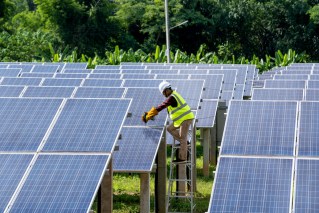‘Reality check’: Latest data dashes hopes of rapid economic recovery


Fresh economic data has dashed hopes of a rapid recovery. Photo: TND/Getty
A string of weak economic data has dashed hopes of a rapid recovery – with activity in the services industry continuing to decline and consumer confidence falling to an eight-week low.
The sharp increase in Victoria’s infection numbers sliced 1 per cent off the ANZ-Roy Morgan Consumer Confidence Index this week after a 4.6 per cent drop the week before.
And the services industry continued to shrink as its pipeline of work ran dry – putting pressure on governments to announce more stimulus.
As the Reserve Bank announced it would hold the official cash rate at 0.25 per cent on Tuesday, peak industry association Ai Group published new data showing the services industry contracted at a similar rate in June as it had done in May.
That squashed suggestions the economy was experiencing a rapid recovery.
Ai Group’s Performance of Services Index registered a score of 31.5 points in June – its second-lowest score on record after April – with all industries measured by the survey contracting and Finance and Insurance contracting the fastest.
Retail Trade and Hospitality registered the best result, thanks to easing restrictions in some states, but the industry still shrunk in June.
Market Economics director Stephen Koukoulas described the results as a “shocker”.
Together with the drop in consumer confidence and rise in infection rates in Victoria, the index provided a serious “reality check” in Mr Koukoulas’s eyes.
“We probably overstated how happy we were because we had been locked down for six or eight weeks, and the reality is now [sinking in],” Mr Koukoulas told The New Daily, referring to nine consecutive weeks of improving consumer confidence leading up to June 2.
“People are probably thinking, ‘I’ve still got a big mortgage, my business is still not that great’, and ‘I’m not getting much money from my term deposits’.”
Ai Group said the instant asset write-off and end of financial year discounting had helped sales, but “reduced customer demand continued to drag down most businesses across all services sectors in June”.
Tweet from @IFM_Economist
Mr Koukoulas said the result would put pressure on policymakers to announce more support for the economy – noting there “had been nothing much in the way of extra fiscal stimulus” since March.
“There’s been $200-odd million for the arts and $688 million for the home-building program [HomeBuilder], but that’s peanuts in the context of a $2 trillion economy,” Mr Koukoulas said.
Giving evidence to the Senate Select Committee on COVID-19 last Thursday, Mr Koukoulas said government should announce employment-creating stimulus measures in the order of 5 per cent of GDP, or $25 billion per quarter.
And he said the Reserve Bank should have ramped up its quantitative easing program on Tuesday, or at least assured people it was prepared to do more should the economy take a turn for the worse.
“It’s one of these things where arguably the effect of the announcement [on confidence] is greater than the actual move itself,” Mr Koukoulas said.
The Reserve Bank started a form of quantitative easing when it cut the official cash rate to 0.25 per cent in March, but has not announced further stimulus since then.
The governor of the central bank, Philip Lowe, said on Tuesday that “the nature and speed of the economic recovery remains highly uncertain”.
“Uncertainty about the health situation and the future strength of the economy is making many households and businesses cautious, and this is affecting consumption and investment plans,” Dr Lowe said.
“The pandemic is also prompting many firms to reconsider their business models.
As some businesses rehire workers as demand returns, others are restructuring their operations.”
Like Mr Koukoulas, AMP Capital chief economist Shane Oliver said the recent data turns up the heat on policymakers – describing the Ai Group data as “a fairly depressing read” that “tells you the recovery in the economy has faltered”.
More industry-targeted assistance was required, he said, and “it’s inevitable that the government will have to do something beyond [the fiscal cliff] in September, using the $60 billion they saved on JobKeeper to do it.”










